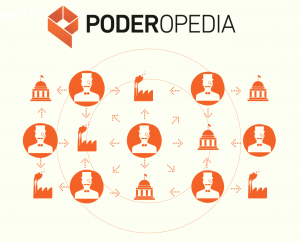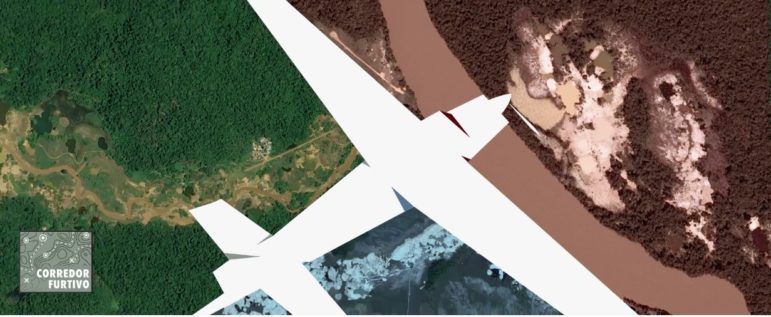

Mapping the Powerful: Poderopedia Takes Know-How Across Borders
 In December 2012, Poderopedia was launched in Chile to map who is who in business and politics in the country, with the goals of promoting transparency and accountability, and revealing potential conflicts of interest among the most influential political, civic and business leaders, as well as companies and institutions.
In December 2012, Poderopedia was launched in Chile to map who is who in business and politics in the country, with the goals of promoting transparency and accountability, and revealing potential conflicts of interest among the most influential political, civic and business leaders, as well as companies and institutions.
It attracted immediate international attention, was recognized by the Data Journalism Awards, and is currently a nominee for Best Innovation in the Bobs Awards by Deutsche Welle.
Since then, with the support of the John S. and James L. Knight Foundation, through a Knight News Challenge grant, Startup Chile and through my ICFJ Knight International Journalism Fellowship, my Poderopedia colleagues Chief Researcher Mónica Ventura, Lead Developer Juan Eduardo Hernández and I have produced exciting results: more than 10 impact cases about conflicts of interest; shed light on shady business deals and potential political misconduct; generated debate among citizens; and provided information for dozens of news stories.
The platform is now a wealth of information about the powerful in Chile. At this writing, it contains info on 3,107 individuals, 1,398 companies and 812 institutions. Six Chilean newsrooms are republishing Poderopedia content. There have been nearly 300 news stories related to Poderopedia, and we have 3,590 registered users.
Expanding Poderopedia to Colombia and Venezuela
I knew from the beginning that turning Poderopedia into an international distributed platform operated by local journalism organizations should be a primary goal.
Now we are paving the first miles of this road to internationalization. On May 3, World Press Freedom Day, Poderopedia will launch the Venezuela country chapter, thanks to a strategic partnership agreement with the Institute for Press and Society (IPYS) of Venezuela and on a date to be announced soon, it will launch the Colombia chapter in alliance with Consejo de Redaccion (CdR) of Colombia. Both journalism organizations are highly renowned and respected in Latin American. The members of CdR, IPYS and Poderomedia Foundation (creator of Poderopedia) agreed to create the new chapters as part of a larger strategy of Latin American cooperation to strengthen democracy; to encourage innovation and technology skills for journalists; and to foster the development of new online media and news applications.
The Venezuela chapter is also backed by Transparency Venezuela through Coalición ProAcceso; while the Colombia chapter gets additional support from a program financed by Open Society Foundations.
The launch of the chapters will be held through Poderopedia.org. On May 3, users will be able to enter the site and navigate to the country chapter they wish to visit: Chile or Venezuela.
The new chapters focus on providing free, vetted information to citizens, journalists, researchers, media and organizations. The Venezuelan and Colombian versions of the website, like the original Chilean site, will let users discover networks of influence, potential conflicts of interest and connections among the main leaders in the political and business world. Site visitors may also register on the platform to provide information, documents and tips.
Showing the big picture of who is who in the elite and what their networks are helps people understand why things happen the way they do. It cuts information asymmetry, helps everyone make more informed decisions, makes powerful people more accountable for their actions and promotes better democracy and a healthier society.
If you want to join us and create a chapter of Poderopedia in your country, please write to us: team@poderopedia.com.
ICFJ Knight International Journalism Fellow Miguel Paz (@miguelpaz) is a Chilean journalist and founder and CEO of Poderopedia, a data journalism website that highlights links among Chile’s business and political elites.
This post originally appeared on IJNet.org. IJNet helps professional, citizen and aspiring journalists find training, improve their skills and make connections. IJNet is produced by the International Center for Journalists in seven languages – Arabic, Chinese, English, Persian, Portuguese, Russian and Spanish – with a global team of professional editors. Subscribe to IJNet’s free, weekly newsletter. You can also follow IJNet on Twitter or like IJNet on Facebook.










